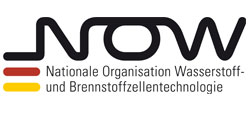DaBrEM
Dalian - Bremen Electric Mobility
Within the cooperation between the Chinese city Dalian and the city of Bremen electric mobility is being evaluated within the areas of data logging and analysis as well as using new concept vehicles. The projects aim is to analyze the usage of electric vehicles not only from the today’s point of view but also to draw conclusion for the future use of these vehicles. To achieve this, DFKI Bremen works closely together with Fraunhofer Institute for Manufacturing Technology and Advanced Materials IFAM in Bremen. While DFKI is responsible for expending their data mining systems for monitoring, logging, and analyzing data as well as building four autonomous concept vehicles, the Fraunhofer IFAM is responsible for developing classification, certification, and licensing methods of various technologies in the field of electric mobility. DaBrEM is funded by the Federal Ministry of Transport, Building and Urban Development (BMVBS) (code: 03EM0404A). The project is coordinated by the Regional Headquarter of the Model Region Electric Mobility Bremen/Oldenburg.
| Duration: | 01.07.2013 till 31.12.2015 |
| Donee: | German Research Center for Artificial Intelligence GmbH |
| Sponsor: |
Federal Ministry of Transport and Digital Infrastructure
NOW GmbH |
| Grant number: | Grant from the special virtue "Energy and Climate Fund", Section 60, Section 6092, Title 68304, budget 2012, code: 03EM0404A |
| Partner: | Fraunhofer Institute for Manufacturing Technology and Advanced Materials IFAM |
| Application Field: | Electric Mobility |
| Related Robots: |
EO smart connecting car
EO smart connecting car further development in subprojekt ITEM
|
Project details
Since 2009 the Robotics Innovation Center in Bremen works in the field of electric mobility within the Model Region Bremen/Oldenburg. Main goals are evaluation, trails, development and research of different technologies in this field. Work includes data mining and data analysis from vehicle internal information as well as user behavior and experience. It also includes development and evaluation of different vehicle concepts and technologies for electric mobility as well as comprehensive fleet tests. Additional work is being done in the field of charging and intelligent user interfaces/services.
Therefore, the DaBrEM project deals with three main topics, which partially include direct exchanges with Chinese partners in Dalian, to evaluate the potentials of a cooperation. Within the two partner cities testing areas are provided which allow to perform fleet tests. For conventional electirc cars, the entire environment is available. For concept vehicles there will be specific areas, so-called “gated areas” within which these vehicles can be used in fleet tests with corresponding types of data acquisition. In both places this works as follows: Fleet tests will be tracked using data acquisition systems utilizing specially made data loggers as well as the necessary server infrastructure.
Afterwards all the data get analyzed to draw conclusions about user behavior and to gain information about the acceptance of electric vehicles. At the same time, there is a direct data exchange and joint planning for the standardization of data acquisition systems in terms of data formats and infrastructure. From the information gained concepts for simulations and models are then derived to facilitate future assessment of user behavior and vehicle usage. For the so-called "gated areas" four innovative test vehicles are built and deployed.
The aim is to integrate autonomous functions into conventional electric
vehicles to support the distribution of vehicles within the city as a
car sharing concept. Vehicles will be equipped with innovative sensors,
actuators and control logic to achieve this task. Meaning, vehicles will
be equipped with sophisticated sensors, actuators and control logic which allows the autonomous active path following with path planning for
automatic road train driving. This way, several cars and drive within a
road train autonomously. To control them only one driver is required. He
will be able to undock cars at their destination if necessary. The
number of drivers required for the distribution of such vehicles can be
reduced and the task can be performed more efficiently. From the
knowledge gained from the experiments, then a concept of a common
vehicle between Bremen and Dalian will be developed. This concept should
be the basis for further follow-up work.
As part of a comprehensive technology review process work for the characterization and certification of different electric vehicle components (motors, power driver more ...) is performed. The aim of this work is the development of methods for the approval of such components.
Videos
DaBrEM: Dalian-Bremen Electric Mobility

Four modiefied off-the-shelf electric vehicles for autonomous driving in the road train.
DaBrEM: EO smart connecting car 2

Autonomous Parking
Universal Docking Interface

Developed by DFKI GmbH to support different requirements and purposes in the field robotics and e-mobility.





